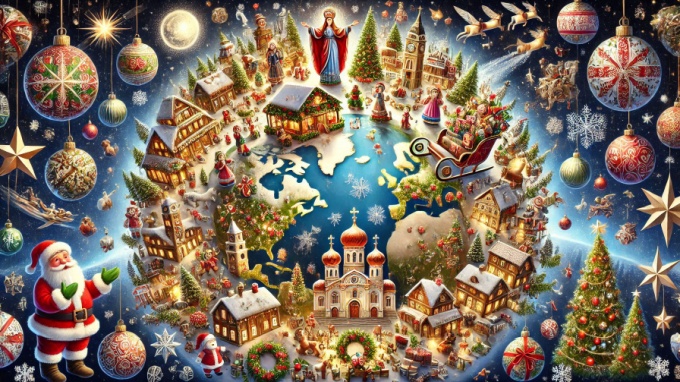Chasing the Festive Dream and Banishing Stress at Christmas
Christmas is often lauded as the most wonderful time of the year. Yet, for many, it feels more like an elaborate exercise in endurance. Between financial strain, strained family dynamics, and a never-ending to-do list, the festive magic can easily fizzle out.
A 2022 study revealed that 38% of UK adults find the festive season more stressful than any other time of year (YouGov, 2022). Let’s delve into why stress at Christmas becomes so overwhelming and, more importantly, how to navigate the season with grace and good humour.
Why Does Christmas Feel Overwhelming?
At its core, festive stress stems from the chasm between expectation and reality. The glossy imagery of flawless family gatherings and perfectly curated decorations creates a standard that’s impossible to meet.
Society’s obsession with holiday perfection fuels a sense of inadequacy, leaving many exhausted from the effort of chasing an unattainable ideal.
The practicalities of Christmas only amplify the tension. Endless gift shopping, navigating overcrowded supermarkets, and juggling social obligations can push anyone to their limit. The financial burden adds another layer of pressure, with many people stretching budgets to breaking point in an effort to meet seasonal demands.
Family interactions are another minefield. For some, Christmas brings unresolved conflicts to the surface, while for others, it’s simply the strain of hosting multiple generations under one roof.
Add sleep deprivation, rich food, and the ghosts of Christmases past, and it’s no wonder the season feels more chaotic than cheerful.

Avoiding Festive Burnout: Practical Strategies to Overcome Stress at Christmas
While stress of Christmas is very real, it is not insurmountable. With a mindful approach, you can reclaim the joy of the season. Here are some actionable steps:
- Set Realistic Expectations: Let go of the idea that Christmas must be perfect. Focus on what truly matters to you and your loved ones, whether that’s a relaxed meal together or simply creating a peaceful atmosphere. Prioritise quality over quantity in every aspect of the festivities.
- Plan with Precision: Organise your holiday tasks into manageable chunks. Whether it’s shopping, cooking, or decorating, breaking tasks into smaller steps prevents overwhelm. Use lists—and stick to them.
- Simplify Gift Giving: Shift away from quantity to thoughtfulness. Secret Santa or gift exchanges can reduce the financial and logistical strain. Alternatively, consider non-material gifts such as experiences or donations to charity.
- Communicate Boundaries: Be clear about your limits. Whether it’s declining an invitation or simplifying family traditions, open communication ensures everyone is on the same page.
- Embrace Delegation: Share responsibilities with others. Let children decorate (embrace the imperfection), assign different dishes to family members, and outsource tasks like cleaning or gift-wrapping if budget permits.
- Make Time for Yourself: Protect your well-being by carving out moments of solitude. Whether it’s a morning walk, an hour with a good book, or simply a cup of tea in peace, prioritising self-care can prevent burnout.
How to Make Christmas Less Stressful (and More Joyful)
To transform Christmas from a source of anxiety into a celebration of connection, adopt these transformative habits:
- Revisit Traditions
Not every tradition needs to be preserved. If a particular custom feels like a chore, consider letting it go. Instead, create new traditions that reflect your current values and circumstances. For example, host a relaxed brunch instead of an elaborate dinner or opt for a family board game night over a formal gathering. - Simplify the Menu
Holiday meals don’t need to be extravagant (see the example from Japan below!). Choose a few standout dishes and focus on quality over quantity. Batch cooking and freezing components ahead of time can save valuable hours on the big day. - Cultivate Gratitude
Gratitude reframes the festive chaos. Pause to appreciate the small moments—the scent of pine, a heartfelt conversation, or a quiet evening by the fire. Shifting your focus from ‘getting everything right’ to ‘savouring the experience’ fosters a sense of fulfilment. - Practice Mindfulness
Mindfulness techniques can transform your experience of the season. Start the day with deep breathing exercises or a short meditation. Throughout the day, stay present by focusing on sensory details: the sound of laughter, the texture of wrapping paper, or the warmth of a shared hug. - Incorporate Movement
Physical activity is a proven stress-buster. Whether it’s a brisk Christmas morning walk or an impromptu dance session to holiday music, movement elevates mood and counteracts tension.

The Role of Laughter and Perspective in Combating Stress at Christmas
Humour can be a powerful antidote to stress at Christmas. When mishaps occur—and they inevitably will—choose to see the funny side. A burnt turkey or a misdelivered gift can become a treasured anecdote rather than a crisis.
Sharing these moments with loved ones fosters connection and reminds everyone that imperfection is part of the charm. After all, a scorched pudding is only tragic if no one tells the story at future gatherings.
Therapists might describe this as reframing: taking a stressful moment and spinning it into something light-hearted. This isn’t just self-help talk; it’s about survival.
When your carefully planned Christmas playlist is hijacked by Great Aunt Sylvia’s relentless karaoke renditions, remember—you’ve just secured your next holiday anecdote.
From a therapeutic perspective, managing expectations is essential. Counsellors often encourage clients to distinguish between what they can control and what they cannot. This principle is particularly useful during the holidays.
Focusing on your own actions and responses rather than external outcomes can significantly reduce stress.

Lessons from Around the World: A Fresh Approach to Christmas
If your usual Christmas feels more “chaos” than “cheer”, why not take inspiration from other cultures? Around the world, people celebrate Christmas in ways that are refreshingly low-key or joyfully communal.
Sweden: Keep It Cosy
The Swedes embrace a concept called lagom, which translates roughly to “just the right amount”. Their Christmas celebrations often focus on simplicity and comfort—think candles, cosy sweaters, and hearty but straightforward meals. Adopting a “less is more” mentality might be just the antidote to holiday excess.
Japan: Make It Lighthearted
In Japan, Christmas is less about family and more about fun. KFC has become a beloved Christmas dinner tradition, and the holiday often involves cheerful displays, romantic dinners, and a festive atmosphere without the heavy expectations. Maybe skipping the roast turkey for a takeaway feast isn’t such a bad idea.
Iceland: The Bookish Christmas Eve
Icelanders celebrate Jólabókaflóð, or the “Christmas Book Flood”. On Christmas Eve, families exchange books and spend the evening reading together. If the thought of endless socialising exhausts you, borrowing this quiet, literary tradition could be your saving grace.
Philippines: Start Early, End Late
Christmas in the Philippines begins in September and lasts well into January. It’s a marathon, not a sprint, with emphasis on community events and joyful gatherings. While adopting their timeline might be extreme, extending your celebration—or starting earlier to reduce last-minute pressure—could bring more calm to the season.
Austria: Embrace the Quirk
In Austria, Christmas isn’t complete without the figure of Krampus, a terrifying creature who punishes naughty children. While we’re not suggesting you recruit a local bogeyman, embracing unique and playful traditions could inject some much-needed levity into your holiday.
Greenland: Whale Skin, Anyone?
In Greenland, Christmas meals may feature mattak (whale skin with blubber) or kiviak (fermented seabird). While these delicacies might not suit Western palates, the Greenlandic focus on sharing traditional foods could inspire you to incorporate unique family recipes or try something daring this year.
Venezuela: Skate to Church
In Caracas, Venezuela, locals roller-skate to early morning Christmas Mass. Streets are closed to cars so entire communities can glide together in festive spirit. Perhaps you’re not ready to skate through frosty roads, but a community walk—or cycle—could bring a refreshing start to the day.
Norway: Hide the Brooms
Norwegians have a curious tradition of hiding their brooms on Christmas Eve to ward off mischievous spirits. While this might seem eccentric, adding a mystical or playful ritual to your holiday could be a fun way to lighten the mood.
South Africa: Fried Caterpillars for Luck
In South Africa, Christmas tables might feature fried caterpillars as a seasonal delicacy, symbolising good fortune. While caterpillars aren’t likely to replace mince pies anytime soon, the focus on starting the new year with luck and optimism is a perspective worth adopting.
Ukraine: Spider Webs for Good Fortune
Ukrainian Christmas trees are often adorned with decorative spider webs. Legend has it that a poor widow’s tree was transformed by a spider weaving intricate webs, bringing prosperity to her family. If tinsel feels overdone, why not incorporate a unique ornament or storytelling element to your décor?
Exploring how others approach the season might inspire you to reimagine your own traditions. Instead of striving for picture-perfect celebrations, draw from global customs to create a Christmas that’s uniquely yours.

A Calmer, More Meaningful Festive Season
Ultimately, escaping stress at Christmas isn’t about achieving perfection. It’s a time to reconnect with loved ones, reflect on the year, and create moments of joy—however small. By embracing imperfection, setting boundaries, and focusing on what truly matters, you can approach the season with a sense of calm and clarity.
So this year, skip the unnecessary extravagance, laugh at the inevitable mishaps, and prioritise connection over consumption.
Take a leaf from other cultures, find the humour in burnt puddings, and let your Christmas be a little less curated and a lot more authentic. The festive season is a fleeting moment; cherish it for what it is, not what it’s ‘supposed’ to be.
Finally, from all of us at Self Help School, we wish you many happy seasons greetings, and we look forward to bringing you more self-improvement courses and resources in 2025!
Dr Tom Barber is a #1 bestselling author, integrative and existential psychotherapist and coach, supervisor, researcher, speaker, and co-founder of Self Help School. His work has spanned nearing 30 years, in which he has focussed on helping people all over the world to improve their knowledge and understanding of their psychological worlds. Tom regularly delivers courses and lectures in the UK, USA, Canada, Mexico, and across Europe. In addition, he maintains a private therapy and coaching consultancy from his base in Essex, and online.

